Old House At Ang Siang Hill
Details
Description
SKU: S0.562225
Composed by Xiao Chunyuan. Contemporary Classical,Repertoire. Score. 10 pages. Published by Xiao Chunyuan (S0.562225).Composed in April 2019, Old House At Ang Siang Hill is originally a poem written by Singaporean poet Arthur Yap and was published in his publication "Only Lines"in 1971. The poem describes "the war" between maintaining tradition & heritage versus urban development as Singapore which is a young country (Singapore gained independence in the year 1965, thus making Singapore 6 years old in the year 1971.)
Quoted by NUS Press on its blogspot website (http://oldvsnewsingaporeidentity.blogspot.com/2015/11/old-house-at-ang-siang-hill-arthur-yap.html),'old house at ang siang hill' seemingly adopts a nonchalant tone in its discussion of tradition and modernity; the poem does not come across as emotionally charged (or even to have much emotions) and delivers the lines candidly. However, it is suggested that underneath this facade is a condemnation of the disregard for tradition with the use of imagery in the poem to evoke nostalgia in the readers. By highlighting the furniture as being "straits-born" and "imported from china", the image of the furniture here is one that can be identified with tradition. The deliberate mentioning of the roots of the furniture creates a parallel that suggests the importance of where one comes from. In addition, the image created by this "house-that-was" underscores this, as it suggests that the house will no longer be around then, thus prompting the reader to think of the space where the house once stood. This translates to a sense of nostalgia in the reader and this triggers the readers to think of the importance of the house, and thus by extension tradition. Ending the poem with "nothing much will be missed / eyes not tradition tell you this", the conflict is being explicitly highlighted here, as the "eyes" can be seen as a symbol for the present and modernity. The line "nothing much will be missed" can be taken as a warning; by disregarding and pushing tradition aside and focusing on modernity, tradition will not be missed in the future and readers are prompted to imagine how it would be like then. The stance of disregarding tradition in favor of modernity is thus subtly condemned, and it urges one to reconsider the importance of tradition. This poem was published in 1971, an era where HDB flats were increasingly built and Singapore urbanized, and Yap probably wanted to highlight the loss of unique places and heritage of Singapore.".
Digital Downloads are downloadable sheet music files that can be viewed directly on your computer, tablet or mobile device. Once you download your digital sheet music, you can view and print it at home, school, or anywhere you want to make music, and you don’t have to be connected to the internet. Just purchase, download and play!
PLEASE NOTE: Your Digital Download will have a watermark at the bottom of each page that will include your name, purchase date and number of copies purchased. You are only authorized to print the number of copies that you have purchased. You may not digitally distribute or print more copies than purchased for use (i.e., you may not print or digitally distribute individual copies to friends or students).
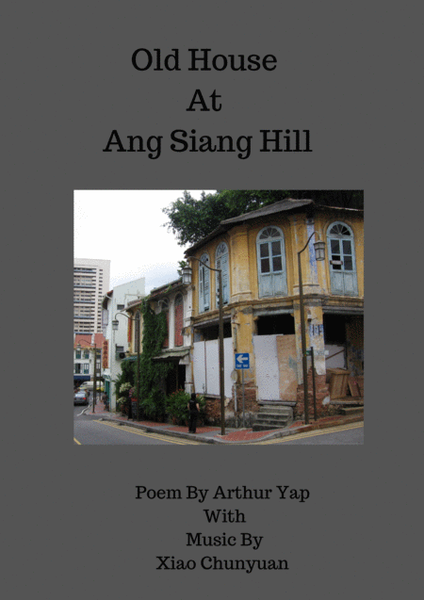
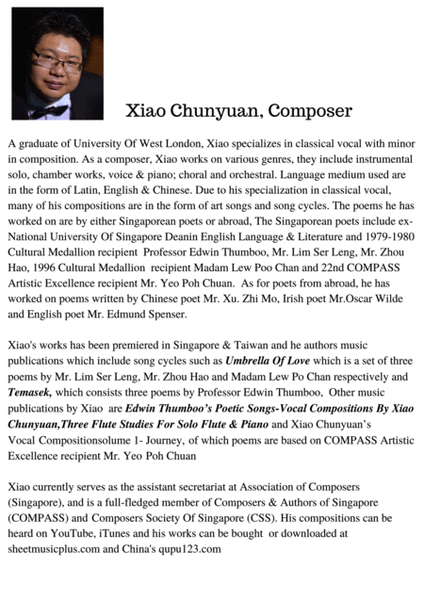
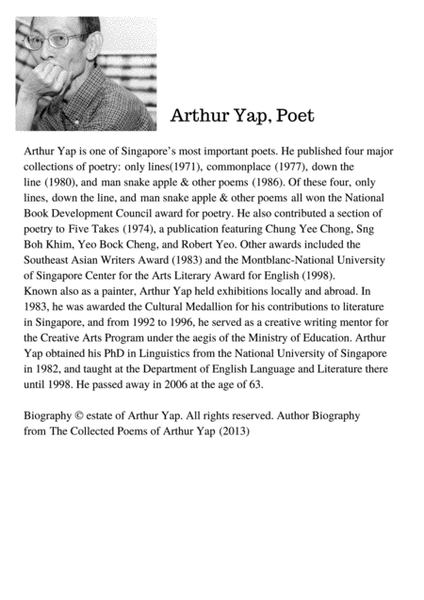
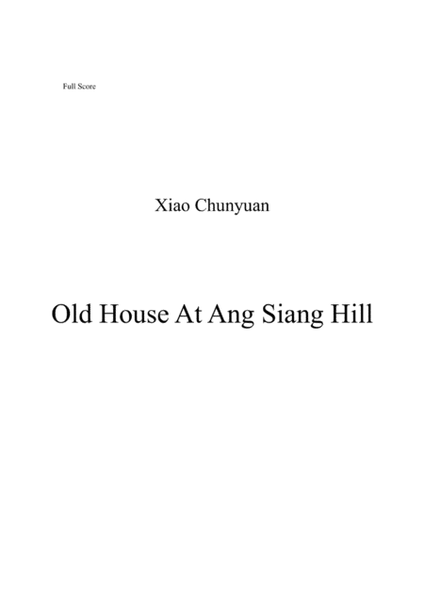
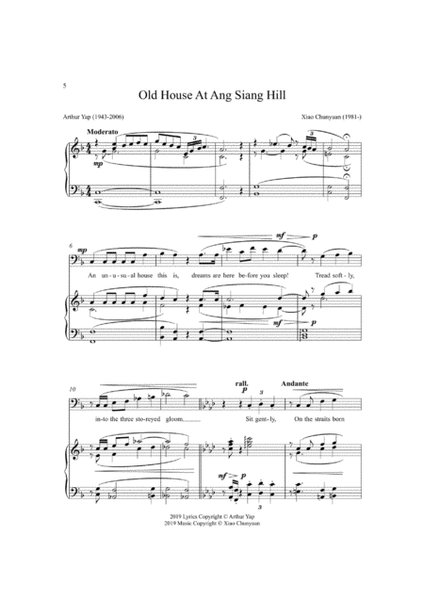
 Share
Share